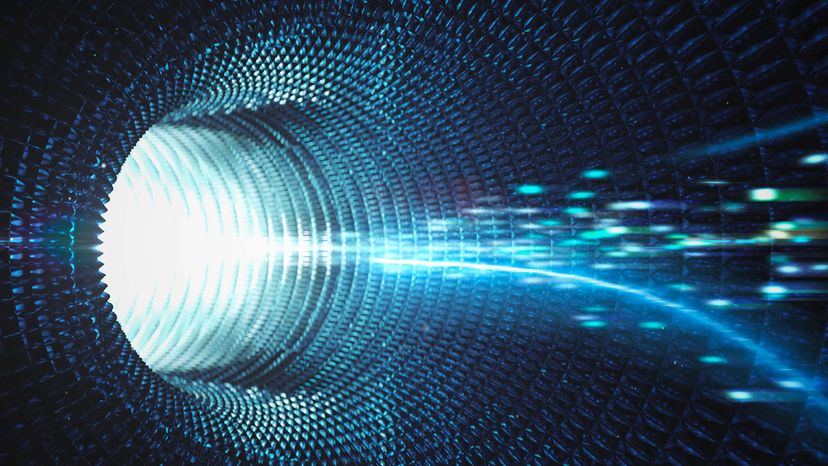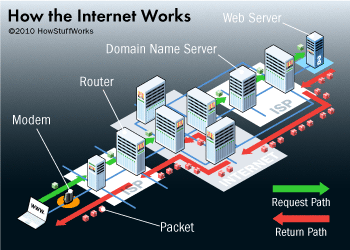So why do we need this and what does it do? For starters, the quantum internet is not a replacement of the regular internet we now have. Rather it would be a complement to it or a branch of it. It would be able to take care of some of the problems that plague the current internet. For instance, a quantum internet would offer much greater protection from hackers and cybercriminals. Right now, if Alice in New York sends a message to Bob in California over the internet, that message travels in more or less a straight line from one coast to the other. Along the way, the signals that transmit the message degrade; repeaters read the signals, amplify and correct the errors. But this process allows hackers to "break in" and intercept the message.
However, a quantum message wouldn't have that problem. Quantum networks use particles of light photons to send messages which are not vulnerable to cyberattacks. Instead of encrypting a message using mathematical complexity, says Ray Newell, a researcher at Los Alamos National Laboratory, we would rely upon the peculiar rules of quantum physics. With quantum information, "you can't copy it or cut it in half, and you can't even look at it without changing it." In fact, just trying to intercept a message destroys the message, as Wired magazine noted. That would enable encryption that would be vastly more secure than anything available today.
"The easiest way to understand the concept of the quantum internet is through the concept of quantum teleportation," Sumeet Khatri, a researcher at Louisiana State University in Baton Rouge, says in an email. He and colleagues have written a paper about the feasibility of a space-based quantum internet, in which satellites would continually broadcast entangled photons down to Earth's surface, as this Technology Review article describes.
"Quantum teleportation is unlike what a non-scientist's mind might conjure up in terms of what they see in sci-fi movies, " Khatri says. "In quantum teleportation, two people who want to communicate share a pair of quantum particles that are entangled. Then, through a sequence of operations, the sender can send any quantum information to the receiver (although it can't be done faster than light speed, a common misconception). This collection of shared entanglement between pairs of people all over the world essentially constitutes the quantum internet. The central research question is how best to distribute these entangled pairs to people distributed all over the world. "
Once it's possible to do that on a large scale, the quantum internet would be so astonishingly fast that far-flung clocks could be synchronized about a thousand times more precisely than the best atomic clocks available today, as Cosmos magazine details. That would make GPS navigation vastly more precise than it is today, and map Earth's gravitational field in such detail that scientists could spot the ripple of gravitational waves. It also could make it possible to teleport photons from distant visible-light telescopes all over Earth and link them into a giant virtual observatory.
"You could potentially see planets around other stars, " says Nicholas Peters, group leader of the Quantum Information Science Group at Oak Ridge National Laboratory.
It also would be possible for networks of super-powerful quantum computers across the globe to work together and create incredibly complex simulations. That might enable researchers to better understand the behavior of molecules and proteins, for example, and to develop and test new medications.
It also might help physicists to solve some of the longstanding mysteries of reality. "We don't have a complete picture of how the universe works," says Newell. "We have a very good understanding of how quantum mechanics works, but not a very clear picture of the implications. The picture is blurry where quantum mechanics intersects with our lived experience."

